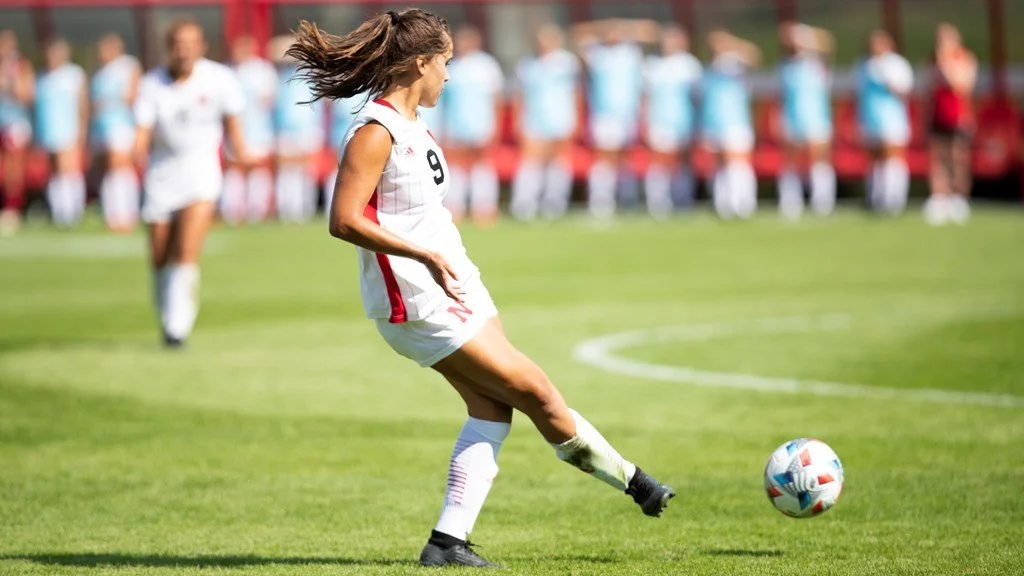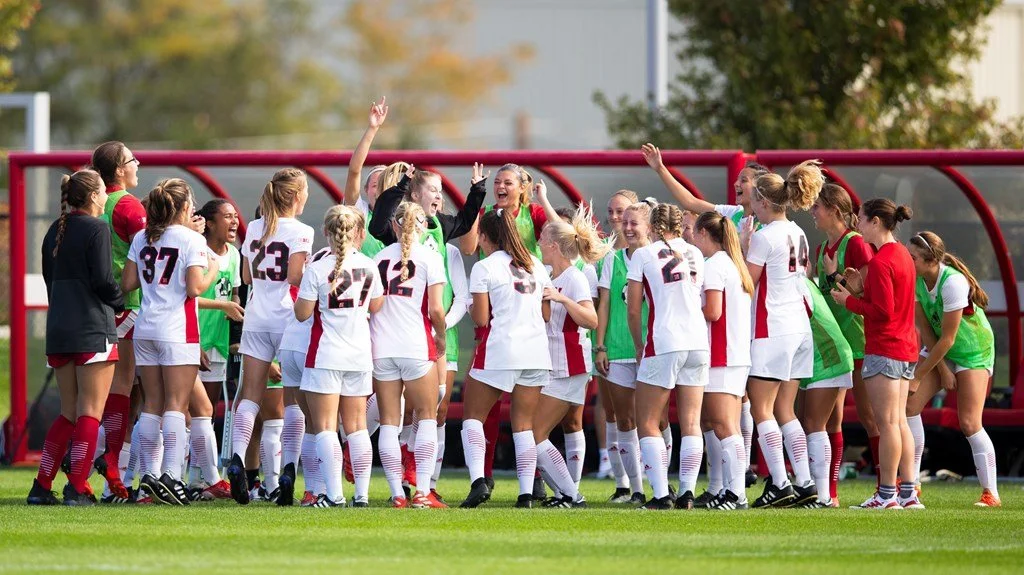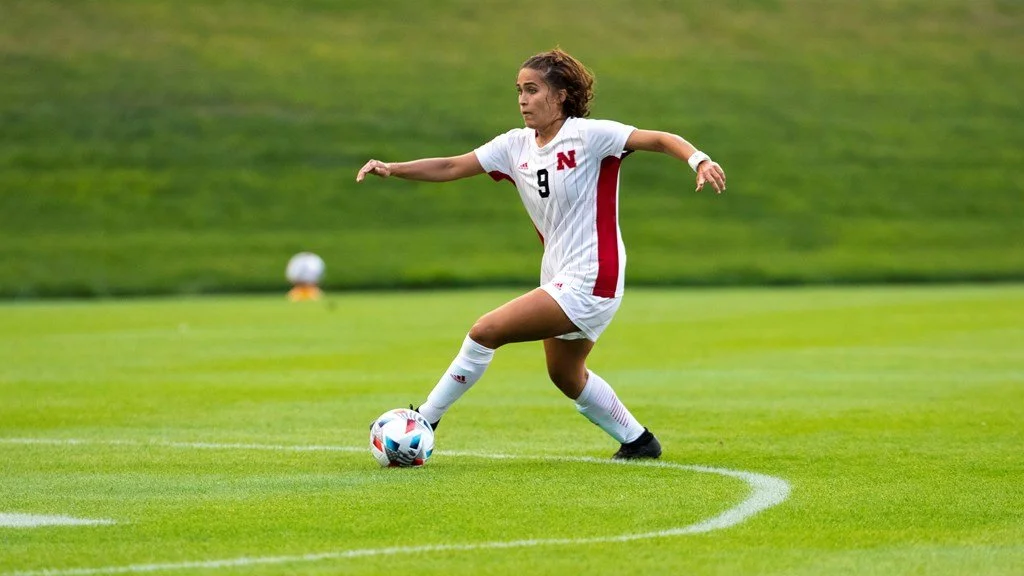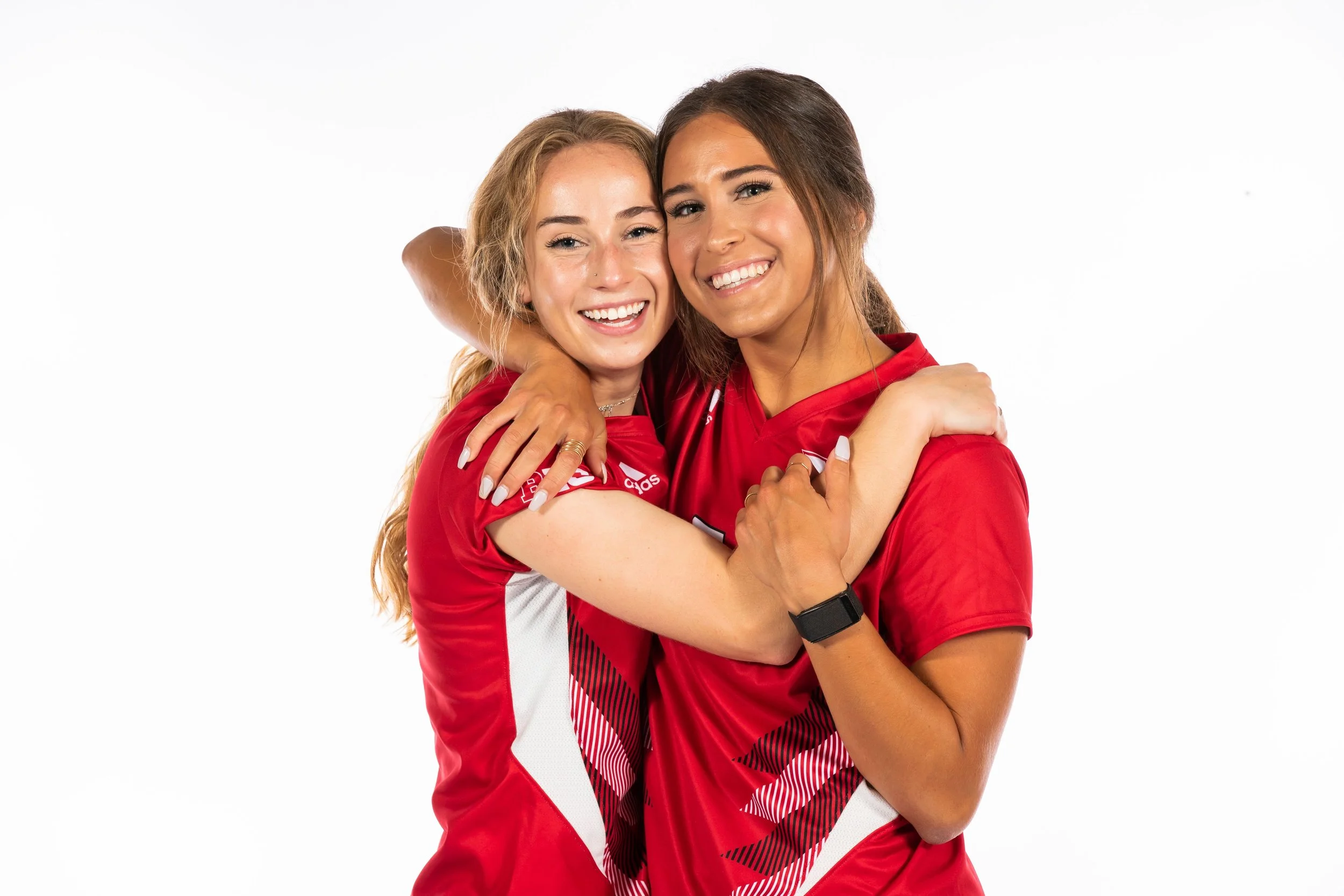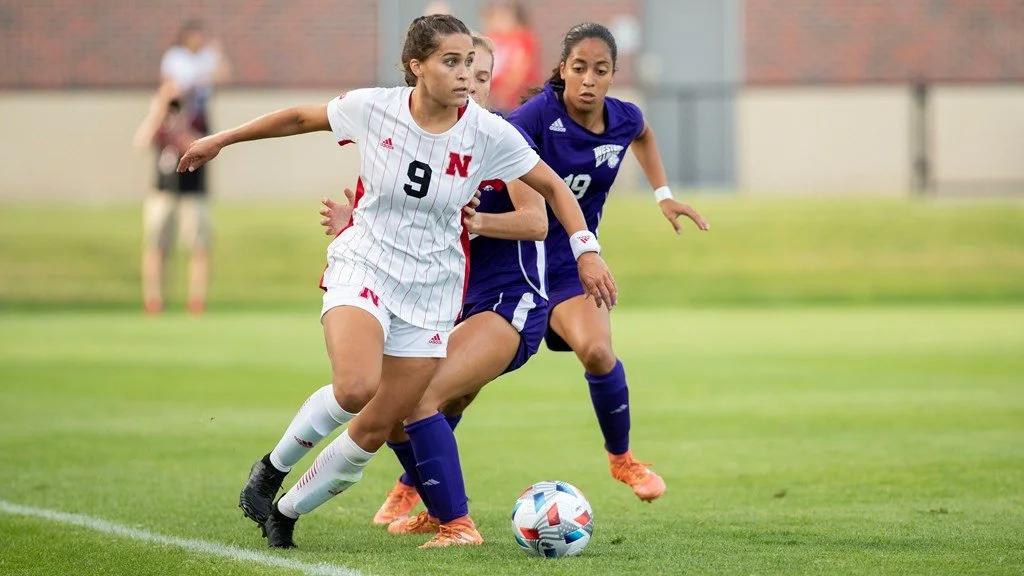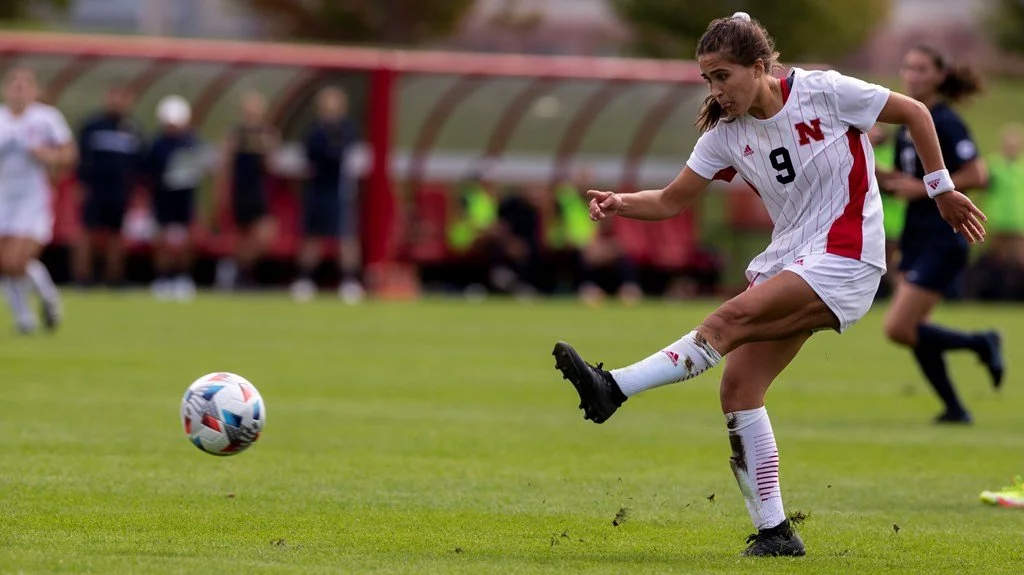From Backyard Games to the Pro Pitch
Theresa Binstock’s journey through Nebraska soccer, professional sport, and the faith that carried her home
There are some athletes who pick a sport.
And then there are those who are born into it.
For Theresa Binstock, soccer wasn’t just a game—it was the backdrop of her childhood, her family language, and her first love. With a dad who played and siblings who turned their backyard into a pitch, it was always part of who she was. But what’s most remarkable isn’t just the longevity of her career. It’s the way she learned to carry both resilience and faith through every chapter—from backyard scrimmages in South Dakota to a professional pitch in Portugal.
“I think I came out of the womb playing soccer,” she laughs. “I always loved it. It was just fun. I didn’t even realize I was good until parents would come up to me after games.”
That joy carried her far. She earned a spot on the varsity high school team as a freshman, started her freshman season at the University of Nebraska, and eventually went on to play professionally overseas. But Theresa’s story is about more than performance.
It’s about perseverance—and what it means to let go of one dream to embrace another.
A Soccer Family
Theresa’s journey was shaped early on by the structure, support, and love of her family. Her mom, a former runner, made sure they got to every practice. Her dad, originally from Chile, found his way to soccer after a kidney transplant ended his rugby days. And her siblings? They were both her teammates and her fiercest competitors in the backyard.
“Everything I did growing up was to be better at soccer. Every other sport, every choice—cross country, strength sessions, even the power program at Sanford—it all circled back to that one goal.”
The Highs, the Lows, and a Dream Come True
Theresa committed to The University of Nebraska—her dream school—after a winter ID camp where she finally felt seen. She remembers checking her email every day, waiting for confirmation. When it came, she cried in the bathroom stall at school, overwhelmed with emotion.
Her college career, though, wasn’t a linear climb. She had strong starts, mid-season slumps, and moments of doubt. But she kept fighting.
It wasn’t until her final season, thanks to a COVID eligibility extension, that everything finally clicked.
“That year, I played free. I wasn’t worried about what my coach thought. I was confident. And for the first time since high school, I was just me on the field again.”
Her final game in a Nebraska jersey ended in Minnesota. It wasn’t a championship game or a senior sendoff with flowers and fanfare. It was cold. Gritty. A tough road loss that didn’t change standings—but meant everything to her.
Because for Theresa Binstock, it was the best game she’d ever played.
She had finally become the player she always knew she could be—steady, confident, free.
When the clock ran out, she climbed into the stands to hug her parents. And in their arms, the weight of five seasons lifted. She cried—not from sadness, but from something deeper: gratitude. Completion. The rare peace that comes when you leave it all on the field.
“Even though we didn’t win, it was the best one I ever played. That was closure for me.”
A Short Pro Season—and a Harder Goodbye
Theresa went on to play for Racing Power in Portugal—a club pushing for promotion into Liga BPI. But what was meant to be a fulfilling final chapter turned out to be something more complicated.
The soccer culture was different. The respect for female athletes wasn’t the same. The training environment was harsh, and the sense of team was missing. And for the first time in her life, she felt like she was getting worse at the sport she’d given everything to.
“I was miserable. I missed home. I had never felt this way before—and I didn’t even recognize myself.”
Coming home wasn’t easy either. The sudden loss of structure, identity, and independence hit hard. She grieved the game. She grieved the part of herself that had always been “the soccer player.”
But in the midst of that grief, she turned toward something deeper.
Healing and Redefining Success
Theresa credits her faith as the anchor in her transition. Prayer and journaling became daily rituals. Over time, she let go of the anger. She found joy again—not through competition, but through purpose.
“I remember asking, ‘Lord, who am I now?’ And He reminded me—first and foremost, I’m a daughter.”
She moved to Sioux Falls, got engaged the next day, and now works in fundraising for the University of Nebraska Foundation—a full-circle role she never expected but is grateful for. She’s happy, centered, and clear on what matters most.
Her Advice to Other Athletes?
“Let yourself grieve when it ends. That loss is real. But also know that your worth never came from your sport. There is so much more ahead of you.”
What Carries You Forward?
For Theresa, sport was just the beginning. Her story reminds us that identity doesn’t end when the games do.
What helped you find purpose beyond your playing days—or what are you still searching for?
Drop a comment or share your story. We’re building a space where every athlete journey belongs—whether it ended on a big stage or in your backyard.
